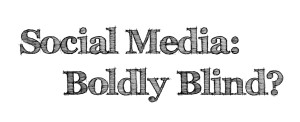By Janet
The spread of untruths online isn’t a new phenomenon by any means. Ryan Lanza was misidentified as the shooter in the Sandy Hook massacre when it was in fact his brother; Reddit users named the wrong people as suspects in the Boston marathon bombing; NBC News highlighted several false reports on social media that claimed the plane landed safely following the disappearance of Malaysia Airlines flight MH370; and the Iowa department of Public Health was forced to issue a statement dispelling social media rumours that Ebola had arrived in the state. In the wake of the attacks in Paris last week, misinformation flooded social media sites like Twitter, Facebook, and Instagram. The result of this: a Photoshopped bathroom selfie of a Canadian Sikh has gone viral after someone claimed on Instagram that he was one of the terrorists behind the attacks.
The spread of false information on social media is sometimes harmless. On occasion, however, it can also easily and irreversibly damage a person’s reputation. Yet it seems that the faith people put in information given by social media has not changed in the past decade. Research scientists who study social network communication refer to those who believe in false information online as “the infected”. The bad information online spreads much in the same way as a real-world virus. Infected Internet users proceed to “infect” others with each false tweets or Facebook posts. “We have millions and millions of people on these social networks,” says Ceren Budak, a researcher who studies online communications at Microsoft Research. “Most of them, in certain cases, are not going to have reliable information, but they’re still going to keep talking.” This phenomenon results in an “information cascade.” According to Coye Cheshire, a social psychologist at the University of California, Berkeley, “[It’s when] an observer sees something and does the exact same thing despite one’s own beliefs or other private information to the contrary.”
Another part of the problem is the way in which people now obtain their news. Almost a third of US adults get at least some of their news from Facebook according to a Pew Research Centre study. With all results from relevant research, it is easy to understand why people tend to pass on news without checking the source. Timely, accurate information from authoritative sources is a proposed solution to this problem. In moments of crisis, the lack of accurate information often worsens the spread of false information. “Fear has a role,” says Emilio Ferrara, a postdoctoral fellow at Indiana University. “If I read something that leverages my fears, my judgement would be obfuscated, and I could be more prone to spread facts that are obviously wrong under the pressure of these feelings.” Spreading news through influential figures or accounts is another solution, and to some extent, that is already happening. ‘Tweet Like a Girl’, a Twitter account with more than one million followers, tweeted the CDC’s “Facts About Ebola” image and has been retweeted almost 12,000 times.
Regardless of efforts taken to combat misinformation, social media will always be flooded with both facts and misinformation. As users, we must realise the importance of validating sources and keep in mind that not everything we read on the internet is true.


